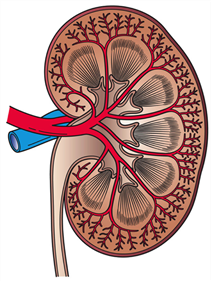
Translocation renal cell carcinoma (tRCC) is a rare and aggressive form of kidney cancer. It accounts for about 5 percent of all renal cell carcinomas in adults and about 50 percent in children. Relatively little is known about this cancer subtype, including its molecular underpinnings and the best course of clinical treatment. In a new comprehensive, multicenter study of 152 samples, investigators at Dana-Farber Brigham Cancer Center helped to illuminate the disease’s molecular landscape and clinical features, finding that genetic alterations are rare in tRCC, except for the gene fusion from which it gets its name. Their work further suggests that tRCCs may be responsive to treatment with immune checkpoint inhibitors.
“We think our findings regarding the potential of immunotherapy combinations could be immediately clinically actionable,” said lead author Ziad El Bakouny, MD, MSc, a resident in Internal Medicine at the Brigham. “Because this cancer is so rare, it is difficult to have clinical trials dedicated to it. Comprehensively studying its molecular and clinical features may help us develop a better roadmap for treatment.”
Source: Read Full Article






